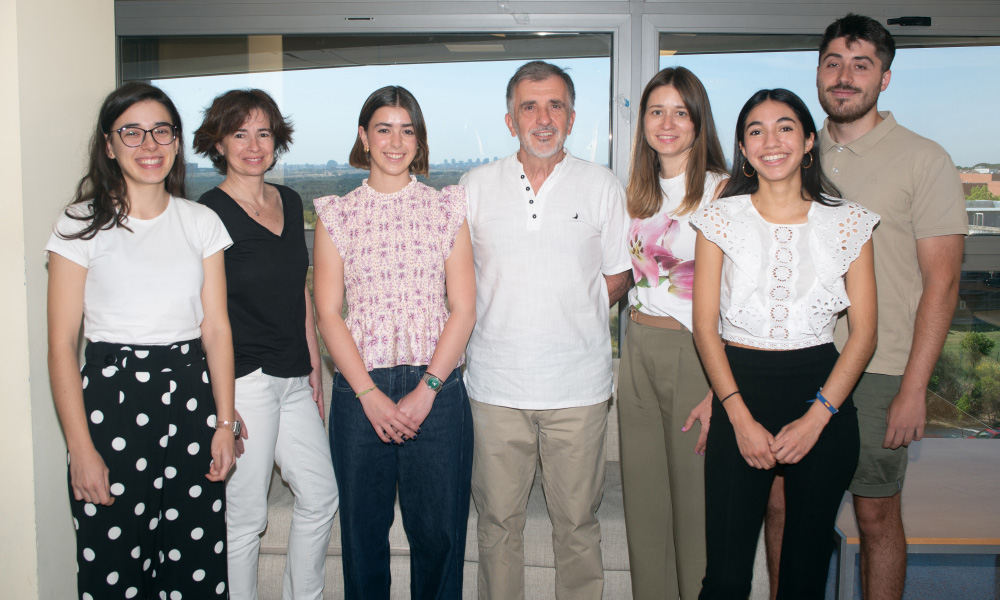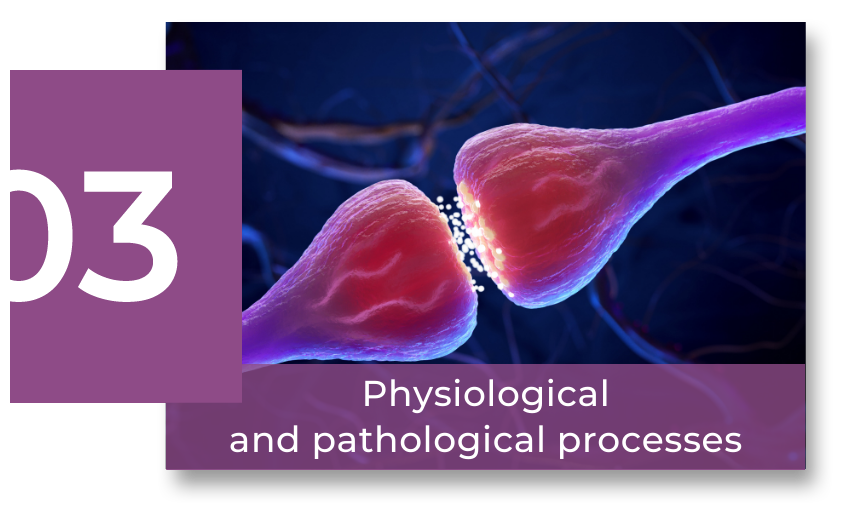Scientific Program
Genome dynamics and function
RESEARCH GROUP
Genome maintenance and variability: enzymology of DNA replication and repair

Luis Blanco
Research
Work done in the last decade has revealed that DNA replication is a major source of genomic instability, due to rearrangements that occur at sites of stalled replication forks. These problems are overall defined as “replication stress” (RS). Along the last five years we have contributed to demostrate that the majority of DNA lesions or blocking structures occurring in the template DNA may be “tolerated” during RS, mainly through the generation of PrimPol-mediated new replicative starting points (namely primers) in the leading strand, immediately beyond the lesion. Importantly, our discovery of PrimPol leads to reconsider the molecular scenario in which the DNA lesion is subsequently repaired, implying the existence of remaining small DNA gaps containing the lesion, generated after PrimPol-mediated restart, that need to be filled, processed, and finally sealed. We are currently interested in the identification and characterization of potential PrimPol interactors, and in the basic mechanism of the subsequent damage tolerance and repair transactions needed behind, after PrimPol-mediated fork restart.
It is worth mentioning that PrimPol inactivation or removal during the replication of nuclear DNA entails a significant reduction of replication fork speed, indicating its relevant role in physiological conditions. Thus, whereas PrimPol-deficient mice and siRNA-depleted human cells were viable, they show large symptoms of genomic instability, very likely related to the augmented DNA RS in these cells.
On the other hand, in the presence of RS induced by replication inhibitors or topoisomerase poisons, such as camptothecin and etoposide, PrimPol deficiency generates a strong and persistent increase in RS signaling, leading to augmented genetic instability, a hallmark of cancer cells. Altogether, our data strongly suggest that PrimPol is a novel and relevant target in cancer. Its deficiency, either due to specific inactivating mutations or to the use of specific inhibitors, in combination with other well known genotoxic agents, would lead to high replicative stress burden causing tumor cells death by replication catastrophe. Thus, another objective of our research is the analysis of human PrimPol regulation, and the characterization of human PrimPol cancer variants with altered specific activity and primase deficiency, that could have a pronostic value in cancer.
From a biotechnological perspective, we have developed a high-trhougput secreening to obtain PrimPol variants with altered specificity that could be relevant for a novel PrimPol-based DNA amplification method named TruePrime™, currently commercialized by Expedeon AG (currently 4BaseBio AG), for the diagnosis of cancer in liquid biopsies.
Group members

Luis Blanco Dávila
Lab.: 403 Ext.: 4685
lblanco(at)cbm.csic.es

María Isabel Martínez Jiménez
Lab.: 403 Ext.: 4686
maria_m(at)cbm.csic.es

Susana Guerra González
Lab.: 403 Ext.: 4686
sguerra(at)cbm.csic.es

Alejandra Jiménez Mejías
Lab.: 403 Ext.: 4686
a.jimenez(at)cbm.csic.es





